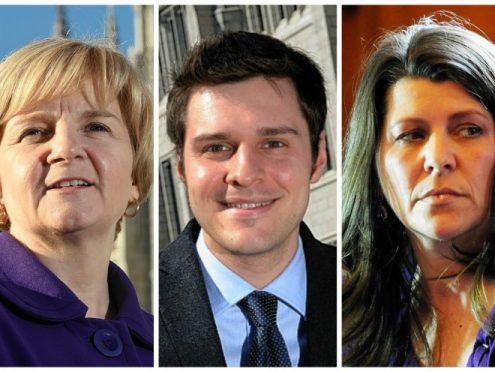Aberdeen’s ruling cross-party administration has penned an open letter to the citizens of Aberdeen explaining why they have to make £26million of cuts to their budget.
The letter, signed by Labour council leader Jenny Laing, her Independent deputy Marie Boulton and Conservative group leader Ross Thomson compares Scotland’s third city’s funding levels to others across Scotland.
It states that if it wasn’t for “swinging cuts” by the Scottish Government, the authority would this year be running a surplus budget of £2.26million.
The letter – published exclusively in the Press and Journal today – claims the city has been “let down yet again by the Scottish Government”.
Last night Mr Thomson said they had released the letter to warn people of the cuts, adding the Holyrood administration had “tied their hands”.
He said: “We have written an open letter to the people and taxpayers of Aberdeen on the eve of our budget announcement explaining as directly as possible why we have to make these cuts.
“Unfortunately there is some pain in this budget but we have looked at every possible way of protecting services and to reduce the effects for the people of Aberdeen.
“Despite these cuts, forced on us by Holyrood, we are still bringing forward exciting capital projects to secure the future of the city.”
The deputy finance convener added: “The modus operandi of the SNP is grievance politics – they are passing on the cuts to local councils so they don’t have to make them themselves.”
But last night, a Scottish Government spokesman said: “Aberdeen City Council will receive over £14million over and above its formula funding share as a result of the new funding formula introduced by the Scottish Government in 2012.
“In addition to council funding, the Scottish Government is investing heavily in infrastructure projects in and around Aberdeen, such as the city bypass which is currently under construction.
“We recognise the pressures on budgets across the whole of the public sector, and in households throughout Scotland, which is why it is important to maintain the council tax freeze – which has now saved the average Band D household around £1,550 in total – as well as reimbursing local authorities to ensure they can continue to provide essential services.”

